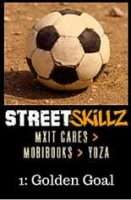“It’s a waste of time,” some people say, but those of us who read know very well that reading is anything but.
“I don’t have the time,” another one would say. If there’s anything that we can all agree on is it’s that there can never be time to do anything if you don’t make time to do it. Basically, if you’re saying ‘you don’t have the time’ what you are implying is that you don’t want to do it.
Why don’t people want to read? Is it because reading is a waste of time and a pointless exercise? Again, those of us who do read know that the truth is contrary to what they believe.
Why don’t people want to read? People don’t read because reading is something that they didn’t learn in their childhoods. In fact, according to reading statistics that came out last year only 5% of South African parents read to their children. How then do we expect that these same children that will one day grow up and love books and reading? Or will read to their children?
The other reason people don’t read is because of boring books. Yes, boring books! Some people don’t read because the books they were exposed to during their schooling were boring and had little to do with their daily experiences. If there’s anything I hate about a book is when I can’t relate to the story and its characters. The problem is not that we don’t want to read. It’s that we don’t have access to books that mirror our lives and speak to us directly and the issues we face.
Add to boring books, the fact that some teachers in our schools are also part of the brigade that ‘doesn’t have time to read.’
Instead, they’d rather use reading as a punishment for unruly students and thus send the wrong idea that reading is only to be done when a teacher punishes you. Children thus grow up thinking that reading is a horrible thing, something that is done only by those who want to waste time.
But we know better and should try to change our friends and families’ opinion with regards to reading. We should highlight its benefits. Clearly, to them, reading has no benefits whatsoever.
Firstly, through reading, whether it’s a novel or a newspaper, one gets to have a wide-ranging knowledge. There are many things that one can get to know through reading. For instance, if it weren’t for reading Chimamanda’s Half of a Yellow Sun I wouldn’t have known about the Biafra War and the effects that the war had on human beings.
Through reading one also learns to sympathise with the down-trodden and understand other people’s (characters) lives. This helps one be a better and emphatic person. Alexander Ramati’s And the Violins Stopped Playing: A Story of the Gypsy Holocaust helped me understand Hitler’s evils better than the history textbook. It didn’t give me the statistics figures of the number of people that had suffered under Hitler’s regime. I can’t remember the characters now, but one thing I remember is how the book made me feel; about war, about the human condition and the evils that can be concocted in the human mind.
Not only that. Reading a book is also entertaining. Some of the best books I’ve read are ones that entertained me by making me laugh. I’m currently reading K. Sello Duiker’s The Hidden Star and I will not forget how hard I laughed when dogs were having a conversation with Ntate Matthews and Nolitye. This was, for me, a first in African Literature – animals that talk? I was as surprised to hear dogs talk as Ntate Matthews who, when he hears the dogs for the first time, says: “What’s going on? Who is behind this witchcraft?”
How can something that is a waste of time be informative and entertaining? And that’s not even all you get from a book. So, tell your friends, that reading is not boring and is definitely worth their time. Its benefits last for a life time. One of the first books I read and will never forget is Stronger than the Storm by Lutz van Dijk. What I learned from it is that what you learn stays in your mind and nobody can ever take that from you.
ZZ xx
Dish it: what are the benefits of reading for you?



